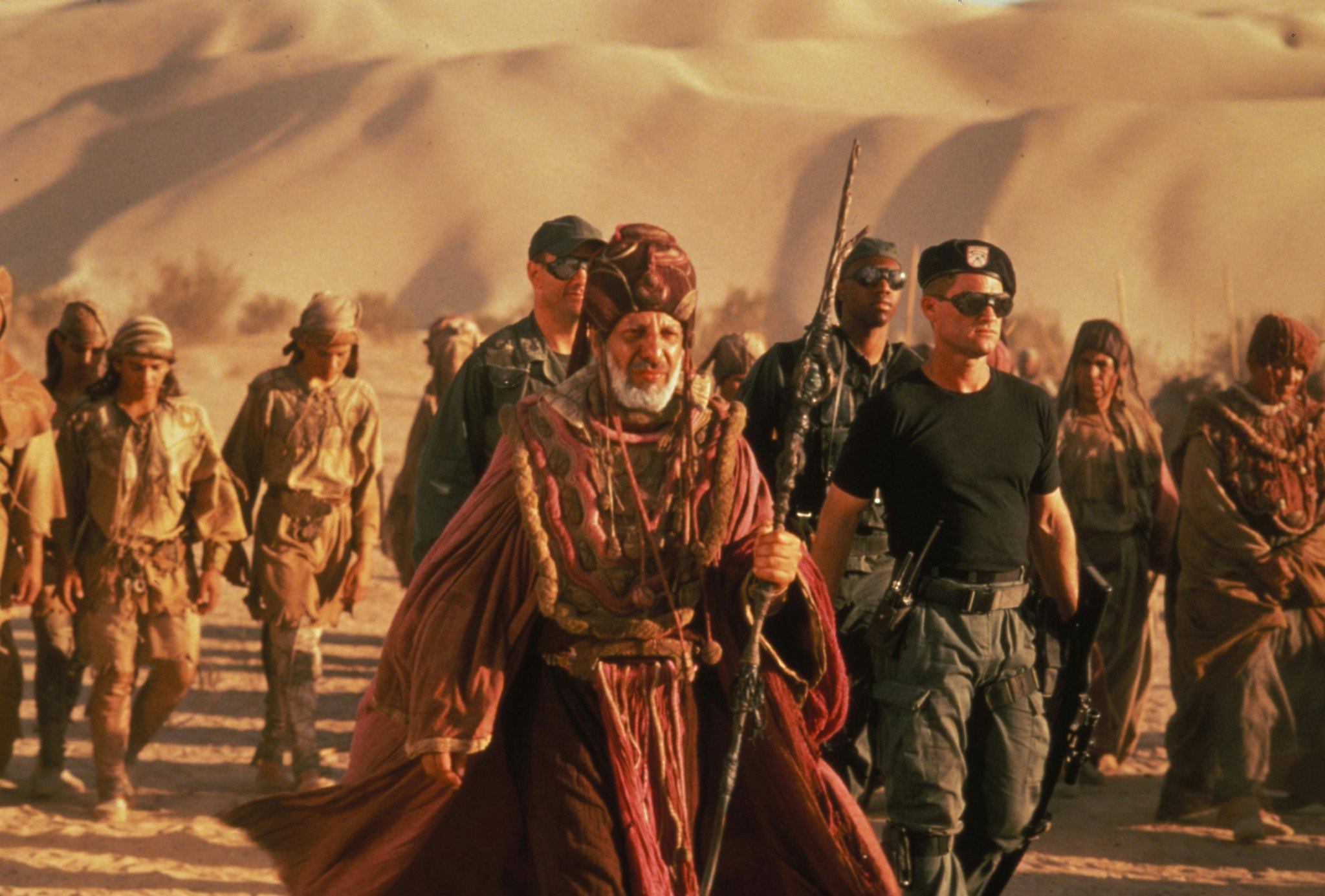
Roland Emmerich is an unlikely American success. Known for Independence Day and the string of disaster movies that followed, the West German-born director gained an early reputation for big spending. His film school debut, 1984’s The Noah’s Ark Principle, focused on American astronauts refusing to follow destructive orders and “nearly bankrupted the film school,” to quote Emmerich speaking to Collider.
Emmerich had grown up in an exciting time for German movies, during a movement known as New German Cinema. It had earned its name from a brash 1962 manifesto declaring, “the old film is dead. We believe in the new one.” By old, these directors meant to reject the kitsch and politically inept cinema of immediate post-war Germany, instead focusing on realism and social issues, often through explicitly left-wing politics. Directors like Wim Wenders and Werner Herzog would become art house legends.
Emmerich had no interest in New German Cinema, and the movement had no interest in him. “People couldn't understand someone making movies that look like American movies in Germany and the critics started trashing me more and more,” he told Collider. Emmerich, making what New German Cinema dismissed as “old film,” was about to prove it was far from dead.
Emmerich’s attitude is clear from the opening of his first big splash in American movies, 1994’s Stargate. The opening credits are pure bombast, like someone took the nostalgia-inflected Indiana Jones movies and amped them up. With a grand operatic score, the camera lavishes on close-ups of what is eventually revealed to be a statue.
From there, the camera jumps to the “North African Desert” in 8000 B.C., where a mysterious spaceship terrifies a local population, then to 1928 Egypt, where it’s implied the spaceship looks like the pyramids. Young Catherine Langford follows her father on an archaeological expedition where a mysterious circular structure is raised. This is all treated with a lush reverence, and Emmerich’s expensive tastes are clear: the archaeological dig feels alive with so many people moving through it.
From there it’s onto the modern day, with Catherine, now an old woman (Viveca Lindfors), attending a talk by Egyptologist Daniel Jackson (James Spader), whose big theory is that the Egyptians didn’t build the pyramids. The crowd is rapt with attention, at least until Jackson admits he has no idea who did build the pyramids, at which point the audience clears out. But Catherine convinces Jackson to follow her and prove his theories correct.

Soon, Jackson makes his way to Colorado, where he’s met by Colonel Jack O’Neil (Kurt Russell). Together with a not-so-crack team of scientists, Jackson figures out what ancient hieroglyphs surrounding that mysterious circle found in 1928 are trying to say: “stargate.” The stargate opens, and Jackson and O’Neil volunteer to go through.
Not a lot makes sense in Stargate, including the nature of the civilian-military operation that Jackson enters. But the movie is here to make science fiction, not sense, and sci-fi marvels are exactly what it generates when our heroes cross through the portal and end up on a planet that looks a whole lot like Egypt.
Stargate thrives in these scenes of early discovery. Emmerich is best when playing with very large pieces, and the moments where Jackson just hangs out while his military handlers get madder and madder at him are charming. One wishes Jackson had some scientist-type to play off, or that he and O’Neil spent more time alone.
This was Emmerich’s big breakthrough in Independence Day, which ensured the cool guy (Will Smith) and the nerd (Jeff Goldblum) got as much time together as possible. But even without such innovations, audiences loved Stargate. Critics, less so. Roger Ebert compared the movie to a “film school exercise” where the assignment was to “conceive of the weirdest plot you can think of, and reduce it as quickly as possible to action movie cliches.”
True, but the cliches are played out on the largest scale Emmerich could imagine. The movie was both familiar and weird enough to become a hit, overcoming a generic script and rote military characters. Much of that is due to the charisma of Spader and Russell, but also Emmerich’s vision. In returning to the old film, he gave American audiences exactly what they wanted.
Stargate is streaming on HBO Max until April 30.







